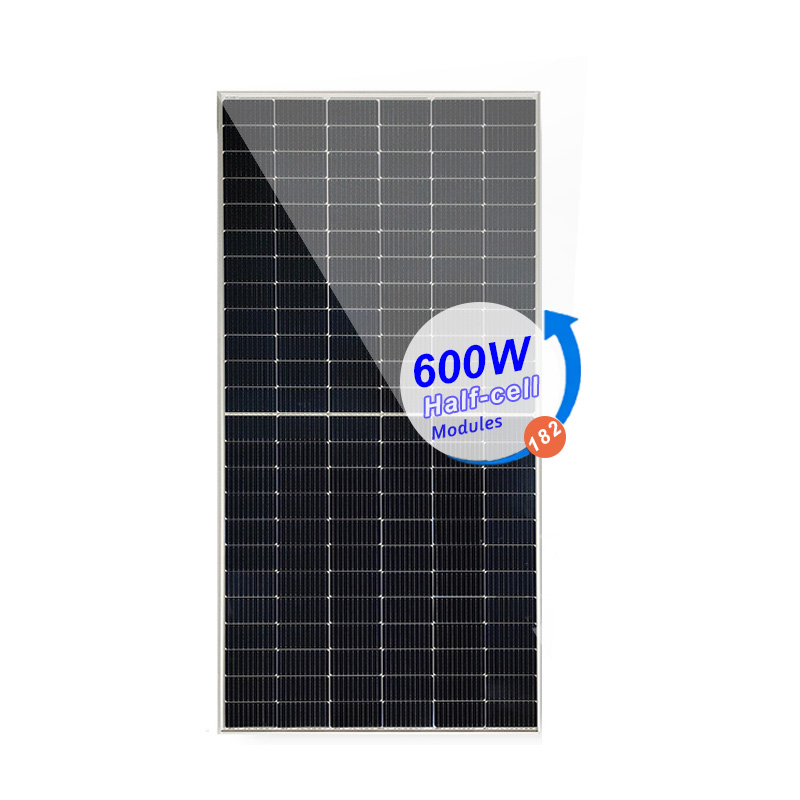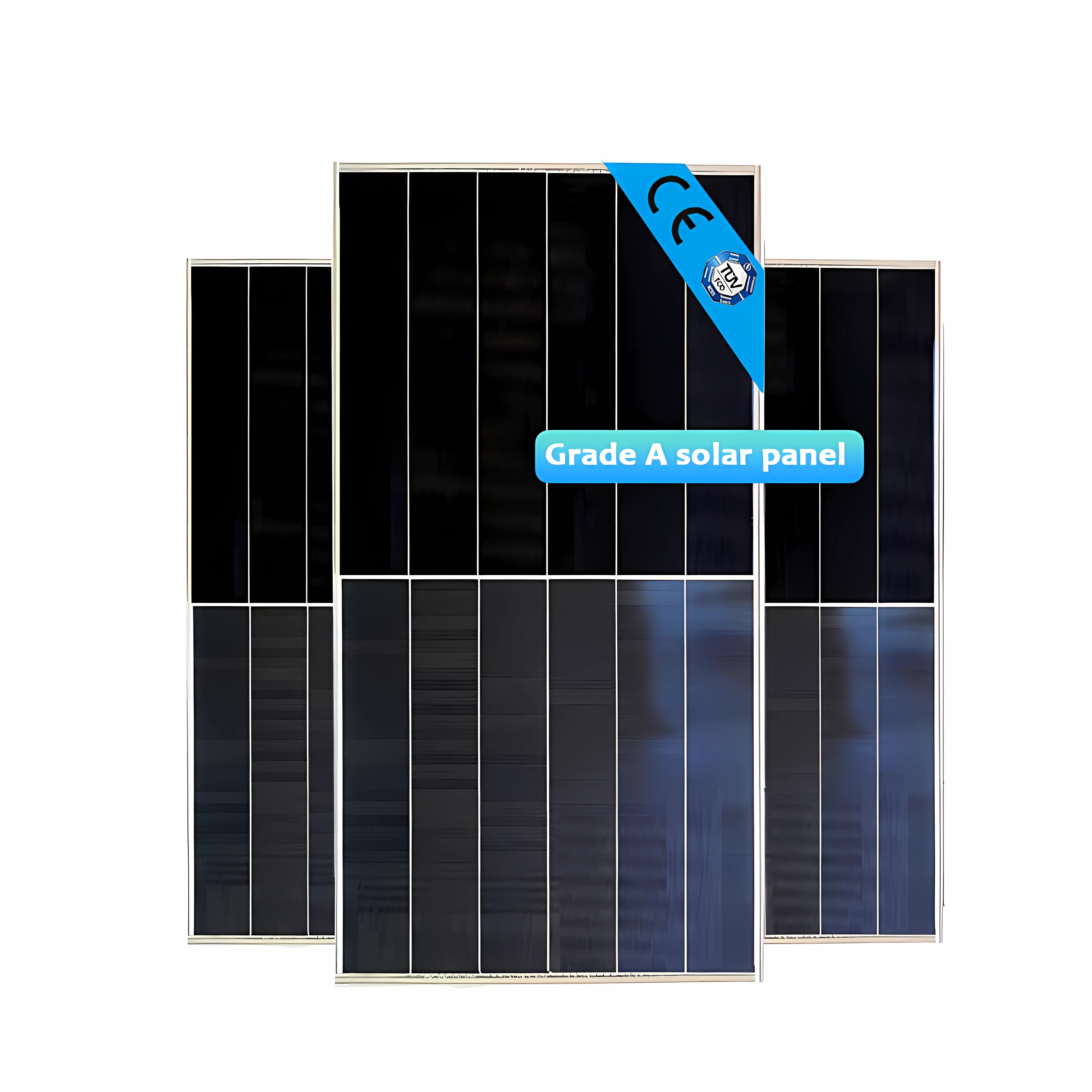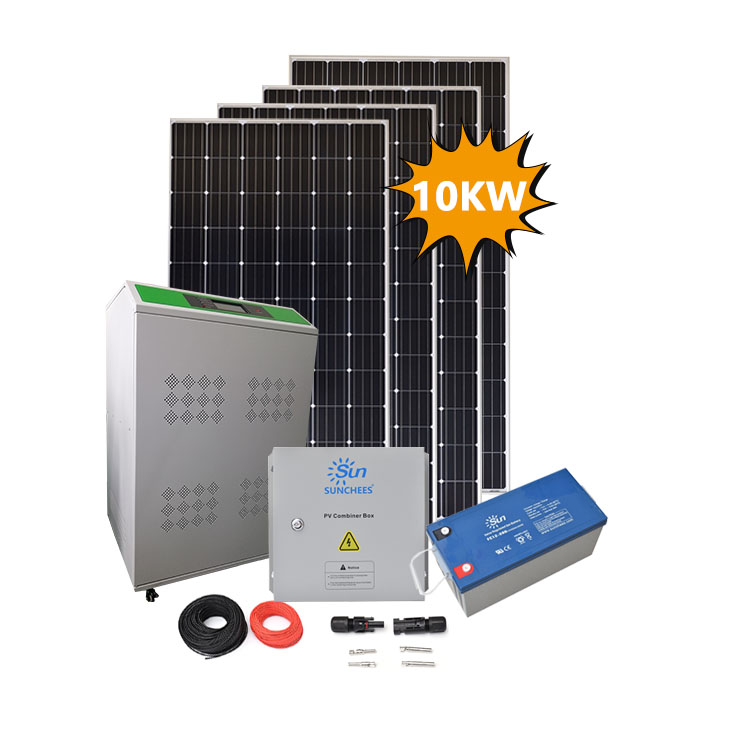Commercial vs Residential Solar Panels: What’s the Difference?
 Sep 10,2025
Sep 10,2025

 Sunchees
Sunchees
Introduction
When choosing a solar solution, one of the most common questions is: commercial vs residential solar panels—which is better for me? While both types convert sunlight into clean energy, their design, scale, durability, and installation requirements differ. This guide breaks down the main differences, highlights real-world applications, and explains when it makes sense to choose commercial panels—even for residential villas.
Key Differences Between Commercial vs Residential Solar Panels
1. Size and Power
-
Commercial solar panels
-
Typically larger: 72-cell or 96-cell design.
-
Power range: 350W–600W+.
-
Example: Sunchees commercial panels reach 600W (Pmax) at STC, requiring about 2.3 m² per module.
-
Dimensions: around 2m × 1m, suitable for factories and wide rooftops.
-
-
Residential solar panels
-
Common formats: 60-cell or 66-cell.
-
Power range: 250W–400W.
-
Dimensions: about 1.65m × 1m, ideal for limited residential rooftops.
-
2. Installation Environments
-
Commercial: factories, office buildings, malls, schools, hospitals, warehouses, and large flat roofs or ground-mounted systems.
-
Residential: home rooftops, small yards, or balconies, where space and aesthetics are key.
3. Efficiency and Energy Needs
-
Commercial systems focus on maximum energy yield, ROI, and long-term cost reduction.
-
Residential systems prioritize household electricity savings, energy independence, and reliability during outages.
4. Durability and Certifications
Commercial panels are built to handle harsher conditions and stricter certifications:
|
Environment |
Challenge |
Requirement |
Sunchees Example |
|
High-rise rooftops |
Strong winds |
Wind load 2400–5400 Pa |
Passed 2400 Pa wind test |
|
Snowy regions |
Heavy snow |
Snow load ≥5400 Pa |
Passed 5400 Pa snow test |
|
Hot climates |
40°C+ rooftops |
PID resistance, thermal cycling |
-40°C to +85°C operating range |
|
Coastal zones |
Salt corrosion |
IEC 61701 salt mist test |
TUV, SUD certified, anti-salt, anti-PID |
|
Desert areas |
Sand abrasion |
IEC 60068-2-68 dust test |
Reinforced glass & frame |
|
Tropical regions |
High humidity |
85°C / 85%RH, 1000h damp heat |
Anti-moisture reliability |
|
Fire risk sites |
Safety |
Class A fire rating |
Certified fire safety |
Residential panels also meet IEC/UL standards but focus more on safety, aesthetics, and trusted brands.
5. Cost and Payback
-
Commercial solar panels
-
Higher upfront investment, but lower cost per watt due to scale.
-
Payback period: 3–7 years.
-
-
Residential solar panels
-
Smaller investment, but longer payback depending on local tariffs and incentives.
-
Payback period: 5–10 years.
-
Simple Comparison Table
|
Factor |
Commercial Solar Panels |
Residential Solar Panels |
|
Size |
Large (72/96-cell) |
Small (60/66-cell) |
|
Power |
350–600W+ |
250–400W |
|
Install Sites |
Factories, warehouses, offices |
Homes, small rooftops, gardens |
|
Investment |
High, large-scale |
Medium to low |
|
Payback |
3–7 years |
5–10 years |
|
Focus |
Efficiency, cost, durability |
Aesthetics, flexibility, safety |
Residential Design Considerations
Homeowners often value how panels blend with their property:
-
Color coordination: All-black panels (frame + backsheet) to match dark rooftops.
-
Symmetry: Panels aligned evenly, sometimes fewer installed just for visual balance.
-
View preservation: Low-profile mounting or BIPV solar roof tiles.
-
Neighborhood rules: Compliance with HOA regulations for uniform aesthetics.
-
Innovative looks: Options like Tesla Solar Roof or colored PV tiles in Europe.
In short: Residential solar panels focus on energy + aesthetics, so the house looks as good as it performs.
Can Villa Owners Use Commercial Solar Panels?
Yes, villa owners can install commercial panels, but with considerations:
Benefits
-
Higher efficiency: 500W+ per panel means fewer panels for more energy.
-
Spacious rooftops: Villas often have larger, flatter roofs ideal for big panels.
-
Better ROI: Maximizes solar potential for higher savings.
Challenges
-
Bigger size: May not fit complex roof shapes.
-
Heavier weight: Requires stronger mounting and structural checks.
-
System matching: Must ensure inverters and batteries are compatible with higher current/voltage.
-
Less aesthetic focus: Commercial panels are designed for function, not looks.
Recommendation
-
If your villa has a large, flat roof → commercial panels = best ROI.
-
If you prioritize aesthetics → choose residential all-black high-power panels (400W–450W).
-
Balanced approach: Use hybrid designs that combine efficiency and style.
Price and Installation Conditions: Final Comparison
-
Commercial panels:
-
Stricter durability standards.
-
Lower cost per watt, but higher installation costs.
-
Best for large, simple roofs.
-
-
Residential panels:
-
Easier installation on complex roofs.
-
More design options for aesthetics.
-
Best for homes with limited or irregular space.
-
Bottom line:
Commercial solar panels are more powerful and durable, but demand better roof conditions and matching equipment. Residential panels are more flexible and visually appealing, but with slightly lower efficiency.
FAQs: Commercial vs Residential Solar Panels
Q1: Are commercial solar panels more durable than residential ones?
Yes. Commercial panels undergo extra wind, snow, humidity, and fire tests, making them suitable for extreme environments like coastal ports or desert regions.
Q2: Can I install commercial solar panels on my home?
Yes, especially on villas with large rooftops. Just ensure your roof structure, inverter, and mounting system can support the larger panels.
Q3: Which option gives faster ROI?
Commercial panels usually provide faster ROI (3–7 years) because of scale and efficiency. Residential panels vary more, depending on electricity prices and subsidies.
Q4: Do commercial solar panels cost more?
Not necessarily. Cost per watt is lower, but installation and mounting costs may be higher due to size and weight.
Q5: Why choose Sunchees for solar panels?
Sunchees panels deliver up to 600W output, certified against salt, ammonia, PID, wind, and snow tests, ensuring 25–30 years of reliable performance—whether for factories, offices, or modern villas.
For businesses looking beyond the comparison and ready to explore real solutions, our Solar Panels for Industrial & Commercial Buildings | Factory Direct Solutions from China page provides detailed product specifications, factory-direct pricing, and installation case studies for large rooftops and industrial sites.
Conclusion
When comparing commercial vs residential solar panels, the right choice depends on your roof type, budget, and priorities.
-
Choose commercial solar panels if you need maximum efficiency, durability, and ROI.
-
Choose residential solar panels if you value aesthetics, flexibility, and simpler installation.
With Sunchees, you don’t have to compromise—our panels combine high output, certified durability, and long-term reliability to suit both business projects and private homes.




 HOME
HOME china battery storage with solar panels manufacturer — how to choose the right partner (with actionable checklists)
china battery storage with solar panels manufacturer — how to choose the right partner (with actionable checklists)  You May Also Like
You May Also Like






 Tel
Tel
 Email
Email
 Address
Address

















